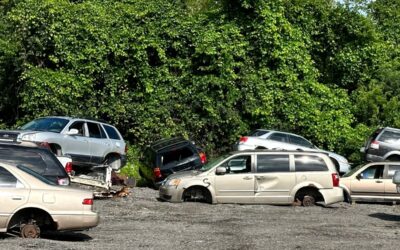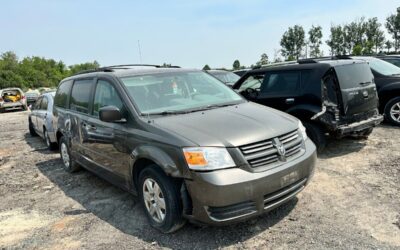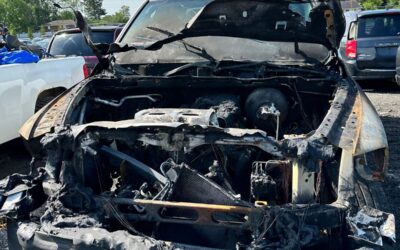Introduction
Scrapping an old junk car might seem like a simple process, you find a buyer, hand over the keys, and get paid. But here’s the problem: not all car scrapyards are licensed recyclers. Many people unknowingly deal with unlicensed scrap dealers simply because they offer quick cash. These unlicensed services don’t follow proper rules, won’t give you a valid Certificate of Destruction, and often skip key steps like removing your name from the vehicle records.
This creates bigger issues later. Your old car might end up in illegal activities, dumped somewhere, or cause environmental damage. Your name could still be linked to it. You could face legal trouble, fines, or lose money if something goes wrong. Once the car is gone, there is no way to track what they did with it.
The good news is that you can avoid all this by choosing a licensed car recycler. These services work legally, give you proper paperwork, and correctly handle your vehicle. In this blog, you will learn exactly why using a licensed scrap car service is the safest, smartest, and most responsible choice.
What Does a Licensed Car Scrap Service Mean?
A licensed car scrap service is a company that operates legally and follows all government rules. These businesses must hold valid licenses to operate a scrap yard or auto recycling facility in Ontario. They also need special approval from environmental agencies and waste management authorities. Licensed recyclers use proper equipment to remove car fluids, handle batteries, and manage dangerous materials.
They also report every scrapped vehicle to the Ministry of Transportation (MoT), so the car is removed from the registry. This process protects you and ensures your old vehicle isn’t used for illegal activities later. When you use a licensed company, you know your car will be handled safely, legally, and responsibly. These businesses give you official paperwork that proves your car is no longer in your name and has been properly scrapped.
Legal Protection You Get from Licensed Providers
When you scrap a car, one of the most important steps is deregistering it. This means the government is informed that your vehicle no longer exists. A licensed car scrap yard handles this process for you. They make sure your name is removed from the car’s records. This protects you from problems in the future. If your old car ends up in an accident, is involved in a crime, or is abandoned, and the records still show your name, you could get into trouble. This often happens when people deal with unlicensed scrap dealers who don’t report vehicles officially. A licensed recycler takes care of the paperwork and gives you a Bill of Sale. This gives you proof that your car was sold and that you’re no longer responsible for it.
Also Read: How do I legally scrap a car in Ontario?
Proper Disposal of Dangerous Materials
Junk cars contain toxic materials, so it’s very important to handle them carefully. These include engine oil, coolant, brake fluid, transmission fluid, airbag chemicals, and lead-acid batteries. If these materials leak into the ground or water, they can cause serious pollution. Professional Auto Wreckers follow strict safety rules to remove, store, and recycle these materials.
Canada has strict regulations on the disposal of hazardous waste. Certified recyclers know these rules and follow them step by step. On the other hand, illegal or unlicensed scrap dealers often avoid this process. They may throw these dangerous items in regular trash or dump them on land, which is harmful and illegal. If your vehicle is linked to an environmental violation, you might also face fines or legal action, even if you had no idea what happened. This is another reason why using a licensed company is the best choice.
Fair Pricing
One of the biggest benefits of working with a licensed scrap service is fair and transparent pricing. These businesses check the current value of scrap metal and vehicle parts before offering you a quote. They consider the car’s weight, the condition of parts like the engine and transmission, and then offer a fair price. Licensed dealers usually give you a detailed quote and do not impose extra charges.
Many of them also offer free towing. They provide payment through cheque or bank transfer, giving you a clear record of the transaction. Unlicensed dealers, on the other hand, may give you a low cash offer, charge for towing, or disappear after picking up the vehicle. You will have no proof that they ever took your car. With a licensed service, everything is done clearly and legally from the beginning.
Environmentally Safe Recycling
Scrapping a car isn’t just about disposal—it’s about ensuring that parts are reused and materials are recycled safely. Licensed auto recyclers follow the Canadian Auto Recyclers Environmental Code (CAREC). This means they recycle over 80% of a vehicle. Reusable parts like the engine, tires, and alternators are tested and sold again. The metal body is melted down and reused in many industries like construction and manufacturing. Rubber and plastic parts are recycled properly.
The Automotive Recyclers of Canada (ARC) reports that this kind of recycling saves energy and reduces pollution. Unlicensed scrap car dealers don’t follow these steps. They may only take a few parts and throw away the rest, which increases environmental damage.
Also Read: Car Recycling 101: How Your Old Car Can Help the Environment
Avoid Scams and Vehicle Theft
Car scrapping scams are growing in big cities like Toronto, Brampton, and Mississauga. Some fraudulent scrap dealers advertise online or cold-call people, offering fast cash and free pickup. They also ask you to sign blank papers or don’t give any receipts. After collecting your vehicle, they may strip it for parts, sell it illegally, or even use it for fraud.
You could be held responsible if your vehicle is found at a crime scene or an abandoned location. Licensed car scrap services operate from known business locations, and they have proper documents and staff. They also have official customer service numbers and active websites. They won’t ask you to sign anything you don’t understand. Choosing a licensed recycler saves you from falling into these traps.
How to Identify a Licensed Scrap Car Service?
It’s not hard to find a licensed scrap service if you know what to look for. First, check if the company has a verified business address in Ontario or a nearby region. Next, ask if they are registered with the Ministry of the Environment or listed with groups like the Automotive Recyclers of Canada (ARC).
A reputable company will provide a bill of sale, receipt, or certificate of destruction after scrapping your car. You can also check their Google reviews or look for customer feedback online. If they are listed in industry directories, that’s another good sign. Be careful of companies that only take cash or refuse to give receipts. A real, licensed business will take the time to explain the process and answer your queries.
Extra Convenience with Licensed Services
Licensed scrap companies also make the process easier for you. Most of them offer free car removal. Whether your vehicle is at home, roadside, or in a parking lot, they can tow it away for free. They also help with all the required paperwork, such as signing over the ownership and handling the Ministry of Transportation documents. Some even offer 24/7 support or emergency pickups.
Also Read: A Complete Checklist of Documents You Need to Scrap Your Car in Canada
Our Role in a Cleaner Canada
When you scrap your car through a licensed auto recycler, you are also helping the environment. Each car has reusable parts and recyclable materials. If processed correctly, one scrapped car can reduce carbon emissions and save energy. Through proper recycling, nearly 1 million car batteries and millions of tires are safely processed each year. This is only possible when vehicles go to licensed recyclers who follow safety and recycling laws.
Conclusion
Scrapping your old car isn’t just about clearing space—it’s about protecting yourself legally, getting a fair price, and making sure your vehicle is recycled responsibly. That’s why choosing a licensed scrap car removal service in Ontario is the smartest decision.
At Greenway Auto Recycling, we are fully licensed and committed to safe, eco-friendly recycling practices. We handle all the paperwork, offer free towing, and pay you fairly—on the spot.
Call Greenway Auto Recycling today at (416) 783-9026 for fast, legal, and reliable scrap car removal across the GTA.
Frequently Asked Questions
1. Why should I choose a licensed scrap car removal service?
Licensed services follow government rules, provide official paperwork, and ensure your vehicle is deregistered. This protects you from legal and financial risks.
2. What paperwork do I need to scrap my car in Ontario?
You’ll need the vehicle ownership (green ownership slip) and a valid ID. Licensed scrap yards will also give you a Bill of Sale or Certificate of Destruction for your records.
3. Do licensed recyclers really pay more for scrap cars?
Yes, licensed companies usually offer fair and transparent pricing based on your car’s weight, condition, and parts value. They also provide receipts for proof of sale.
4. How do licensed car recyclers protect the environment?
They safely dispose of toxic fluids, recycle reusable parts, and follow the Canadian Auto Recyclers Environmental Code (CAREC), recycling over 80% of every vehicle.





